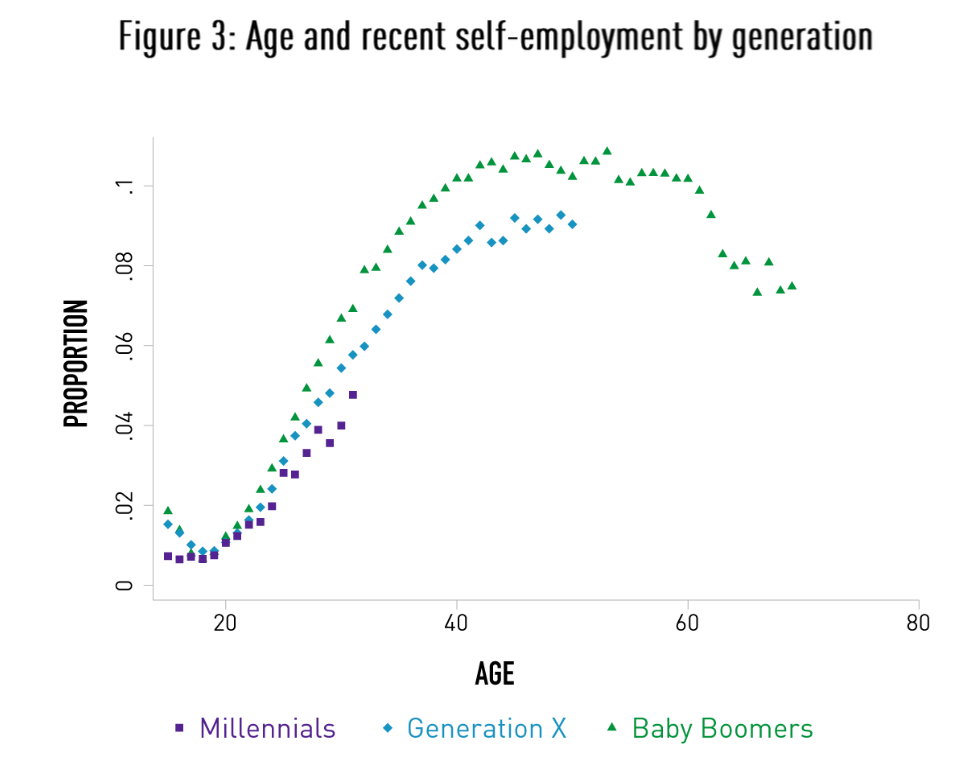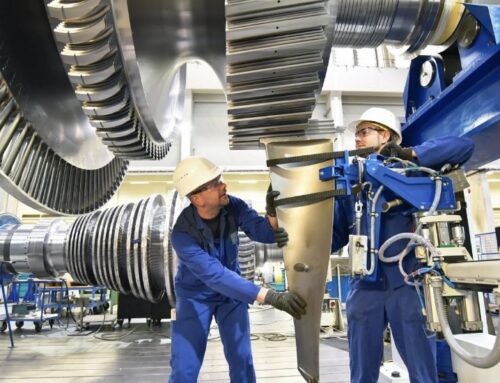Widely perceived as creative, diverse and optimistic — not to mention overeducated and underemployed — millennials are often looked to as the most promising cohort of innovators and entrepreneurs in generations. But as researchers take a closer look, these assumptions are proving to be mere stereotypes. In fact, the Small Business Administration released a report today with new evidence that millennials are the least entrepreneurial generation in recent history.
At age 30, less than 4 percent of millennials reported self-employment as their primary job, the report says. That compares to 5.4 percent at age 30 for Generation X and 6.7 percent at age 30 for the Baby Boomers. Of course, reporting to be self-employed is not the same as reporting to be an ambitious high-growth entrepreneur But self-employment is an important — and really the only available — proxy for assessing the desire to go out on one’s own as a career choice across generations.
Perhaps surprisingly, there’s also little evidence that we can attribute this phenomenon to the Great Recession. In a trend that long pre-dates the most recent economic downturn, self-employment rates have been falling steadily since at least 1990 for all age groups except 55 and over.
Rising student debt levels may be making it harder for would-be entrepreneurs to put the financial groundwork in place for starting a business. But a recent analysis on these trends by The Wall Street Journal concluded that there’s more to the story: risk aversion appears to be increasing for a variety of reasons, few of which we know much about. The many tech tools that are supposed to have lowered the costs of starting a business seem to be up against larger forces. The rate of new business formation continues its terminal decline.
The propensity towards self-employment rises with age, but given long-term trends and a lower starting point, millennial entrepreneurship is unlikely to accelerate fast enough to catch up with prior generations.
This poses a problem for the U.S. economy. Entrepreneurship is vital for job and productivity growth. New businesses are critical for commercializing and scaling both product and business model innovations. Unless millennials get the entrepreneurial bug, a less dynamic U.S. economy lies ahead.






